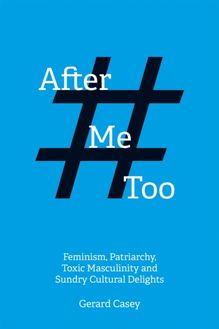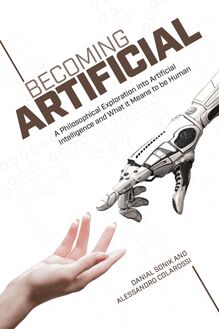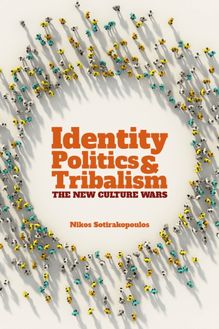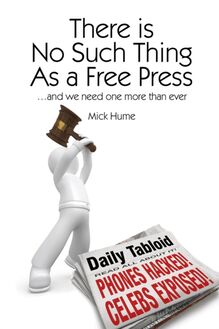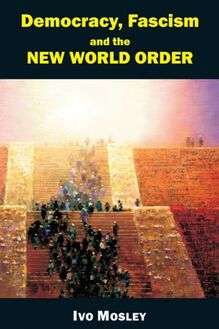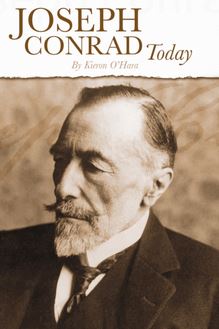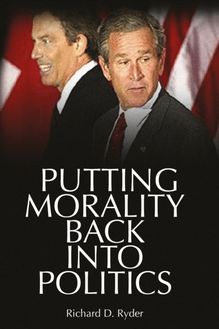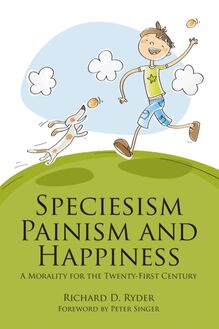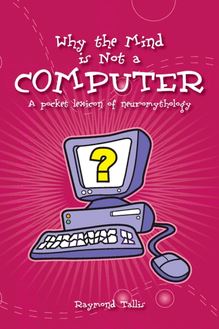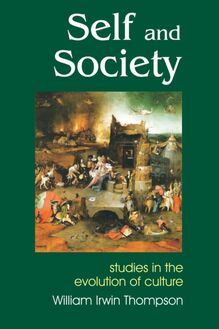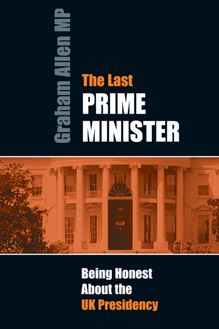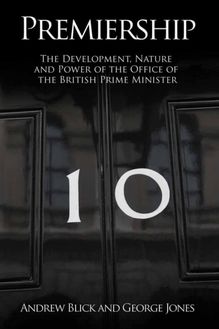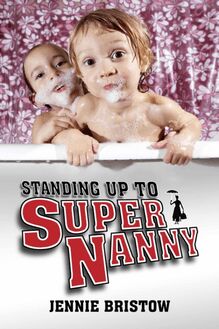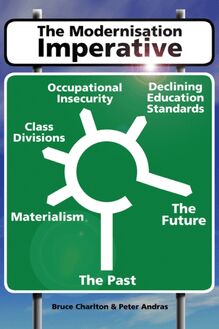-
 Univers
Univers
-
 Ebooks
Ebooks
-
 Livres audio
Livres audio
-
 Presse
Presse
-
 Podcasts
Podcasts
-
 BD
BD
-
 Documents
Documents
-
- Cours
- Révisions
- Ressources pédagogiques
- Sciences de l’éducation
- Manuels scolaires
- Langues
- Travaux de classe
- Annales de BEP
- Etudes supérieures
- Maternelle et primaire
- Fiches de lecture
- Orientation scolaire
- Méthodologie
- Corrigés de devoir
- Annales d’examens et concours
- Annales du bac
- Annales du brevet
- Rapports de stage
La lecture à portée de main
Vous pourrez modifier la taille du texte de cet ouvrage
Découvre YouScribe en t'inscrivant gratuitement
Je m'inscrisDécouvre YouScribe en t'inscrivant gratuitement
Je m'inscrisEn savoir plus
Vous pourrez modifier la taille du texte de cet ouvrage
En savoir plus

Description
Sujets
Informations
| Publié par | Andrews UK |
| Date de parution | 09 septembre 2013 |
| Nombre de lectures | 0 |
| EAN13 | 9781845407117 |
| Langue | English |
Informations légales : prix de location à la page 0,0324€. Cette information est donnée uniquement à titre indicatif conformément à la législation en vigueur.
Extrait
Title page
Healing, Hype or Harm?
A Critical Analysis of Complementary or Alternative Medicine
Edited by
Edzard Ernst
imprint-academic.com/societas
Copyright page
This collection copyright © Edzard Ernst, 2008
Foreword copyright © Nick Ross 2008
What is Complementary and Alternative Medicine copyright © Barbara Wider and Kate Boddy, 2008
Why is CAM so Popular? copyright © Stéphane Lejeune, 2008
Evidence in Healthcare: What it is, and how we get it copyright © Leslie B. Rose, 2008
Reclaiming Compassion copyright © Michael Fitzpatrick, 2008
Alternative Medicine in UK Universities copyright © David Colquhoun, 2008
Healing but not Curing: Alternative Medical Therapies as Valid New Age Spiritual Healing Practices copyright © Bruce G. Charlton, 2008
Research on Complementary or Alternative Medicine: The Importance and Frailty of Impartiality copyright © Asbjørn Hróbjartsson, 2008
An Amateur’s View of the CAM Scene copyright © James Randi, 2008
CAM in Court copyright © John Garrow, 2008
Ethics and Complementary or Alternative Medicine copyright © Michael Baum and Edzard Ernst, 2008
CAM and Politics copyright © Leslie B. Rose and Edzard Ernst, 2008
Integrated Medicine? copyright © Edzard Ernst, 2008
Homeopathy in Context copyright © G.V.R. Born, 2008
Chiropractic: Science, Religion or Political Movement? copyright © Terry Polevoy, 2008
Concepts of Holism in Orthodox and Alternative Medicine copyright © Michael Baum, 2008
Vitalism and other Pseudoscience in Alternative Medicine: The Retreat from Science copyright © Peter H. Canter, 2008
Placebo and other Non-specific Effects: An Important Issue in CAM copyright © Edzard Ernst, 2008
Patient Choice copyright © Hazel Thornton, 2008
The moral rights of the authors have been asserted.
No part of this publication may be reproduced in any form without permission, except for the quotation of brief passages in criticism and discussion.
Originally published in the UK by Societas
Imprint Academic, PO Box 200, Exeter EX5 5YX, UK
Originally published in the USA by Societas
Imprint Academic, Philosophy Documentation Center
PO Box 7147, Charlottesville, VA 22906-7147, USA
2013 digital version by Andrews UK Limited
www.andrewsuk.com
Contributors
Michael Baum
The Portland Hospital
Great Portland Street
London W1N 6AH
Michael@mbaum.freeserve.co.uk
Kate Boddy
Complementary Medicine
Peninsula Medical School
25 Victoria Park Road
Exeter EX2 4NT
k.boddy@ex.ac.uk
Gustav Born
William Harvey Research Inst.
Charterhouse Square
London EC1M 6BQ
g.v.born@qmul.ac.uk
Peter H. Canter
Complementary Medicine
Peninsula Medical School
[as above, Boddy]
peter.canter@pms.ac.uk
Bruce Charlton
School of Psychology,
Newcastle University
Newcastle NE1 7RU
bruce.charlton@newcastle.ac.uk
David Colquhoun
Department of Pharmacology
University College London
Gower Street
London WC1E 6BT
d.colquhoun@ucl.ac.uk
Edzard Ernst
Complementary Medicine
Peninsula Medical School
[as above, Boddy]
Edzard.Ernst@pms.ac.uk
Michael Fitzpatrick
Barton House Health Centre
London N16 9JT
fitz@easynet.co.uk
John Garrow
Johngarrow@aol.com
Asbjørn Hróbjartsson
The Nordic Cochrane Centre
Rigshospitalet, Copenhagen
ah@cochrane.dk
Stéphane Lejeune
stephane.lejeune@eortc.be
Terry Polevoy
938 King Street West
Kitchener, Ontario N2G 1G4
tpinfo@healthwatcher.net
James Randi
randi@randi.org
Leslie Rose
Pharmavision Consulting Ltd.
11 Montague Road
West Harnham
Salisbury SP2 8NJ
lesrose@ntlworld.com
Hazel Thornton
Dept of Health Sciences
University of Leicester
hazelcagct@keme.co.uk
Barbara Wider
Complementary Medicine
Peninsula Medical School
[as above, Boddy]
b.wider@exeter.ac.uk
Foreword, Nick Ross
I am a sceptic. Maybe it’s inbred personality, maybe it’s years of working as a journalist, but give me a fact and I will want its provenance, tell me a story and I’m your archetypal doubting Thomas. I am no scientist, but I have come to recognise that most of the great advances by humanity have developed from the systematic form of scepticism we call the scientific method, which is to say they have been based on logical trial and error. Even the greatest temples to the gods were constructed on scientific principles; if not they tended to fall down. The more systematic the measurement and testing the greater the pace of progress, with more discoveries in the past two centuries than in all the millennia that went before.
In many ways science is the antithesis of faith. Science attempts to reject dogma not indulge in it. Good science is intrinsically heretical. In fact nearly all of its most wondrous discoveries are thoroughly counterintuitive, not least that the earth is a sphere and we are not at the centre of the cosmos, that the universe evolved creating life within the seas and hoisting seashells onto mountaintops, and that if people were to fly into the heavens we had to stop flapping.
I say science is the antithesis of faith because there has always been a temptation to find common ground. Most of great religions could always burn or imprison those like Galileo whose iconoclasm threatened their power over the people, but they could not resist the logic of science for ever. As Isaac Asimov famously observed, reason’s victory over faith became tangible when churches began installing lightening conductors. Some fundamentalists hold out, repudiating Darwin or even Copernicus and not bothering their heads with the likes of Einstein, but on the basis that if you can’t beat them join them, most religions attempt to incorporate scientific concepts into their own systems of belief.
Now we see a campaign to integrate faith and science for the treatment of disease. Indeed, why should orthodox treatment not open its arms to the alternative therapists and provide a truly ‘holistic’ model of healing? Well, I can see the attractions. So far as alternativists are concerned it would be good to cash in on some of the status - and cash itself - which has been earned by mainstream medicine. And for doctors, most all of whom are acutely short of time to spend with patients, almost anything that relieves the pressures on them must be appealing.
Hence this book of essays which explores the implications.
For my own part I come back to my contention that faith and science are antithetical . Medicine is a relative newcomer to science. Until right up to the twentieth century it remained in the grip of ancient myths promoted by those early high priests of medicine, the Greek Hippocrates and the Roman Galen, and its shameful history is worth recalling. To give those two pioneers due credit they did both acquire a good deal of anatomical knowledge and Galen was a pioneering surgeon, but their very successes lent weight to some dangerous ideas. They theorised that the four seasons of the year had counterparts in four ‘humours’ in the human body, and that blood, yellow bile, black bile and phlegm dictated people’s personalities - sanguine, choleric, melancholic or phlegmatic. Sadly, their imagination took them beyond harmless conjecture and convinced them that it was an imbalance in these four humours which caused disease. Because of their huge reputations, for generation after generation of sick and dying patients, mainstream treatment involved a great deal of bloodletting and poisonous emetics.
This primitive approach endured until the age of deference began to founder. It survived the best endeavours of William Harvey (who discovered the circulation of blood), Louis Pasteur (who discovered germs) and many like them, and it was not until after the second world war that scientific rigour began to be widely applied. The term ‘evidence-based medicine’ has only been meaningful for twenty years or so, and even now many medical students graduate with little comprehension of scientific methods - as I can testify from my experience with a medical charity when trying to hand out research grants to doctors who plainly do not know how to design reliable and meaningful experiments. In fact the medical establishment still talks of medicine as, ‘both a science and an art’ without acknowledging the distinction and without realising implicit contradictions.
By ‘art’, of course, they mean intuition, guesswork and gut feeling. We humans rely on that a lot. Our brains seems to be hard-wired for anecdotes, and we learn most easily through compelling stories; but I am aghast that so many people, including quite a number of my friends, cannot see the pitfalls in this approach. Science knows that anecdotes and personal experiences can be fatally misleading. It requires results that are testable and repeatable. Medicine, on the other hand, can only take science so far. There is too much human variability to be sure about anything very much when it comes to individual patients, so yes there is often a great deal of room for hunch. But let us be clear about the boundaries, for if we stray over them the essence of science is quickly betrayed: corners get cut and facts and opinions intermingle until we find it hard to distinguish one from the other.
As a result of this confusion conventional medicine is not as scientific people tend to think. Some of it is: nowadays a new medicine must go through all the hoops of careful scientific protocol, but once launched - unless there are obviously serious adverse events as there were with cardiovascular proble
-
 Univers
Univers
-
 Ebooks
Ebooks
-
 Livres audio
Livres audio
-
 Presse
Presse
-
 Podcasts
Podcasts
-
 BD
BD
-
 Documents
Documents
-
Jeunesse
-
Littérature
-
Ressources professionnelles
-
Santé et bien-être
-
Savoirs
-
Education
-
Loisirs et hobbies
-
Art, musique et cinéma
-
Actualité et débat de société
-
Jeunesse
-
Littérature
-
Ressources professionnelles
-
Santé et bien-être
-
Savoirs
-
Education
-
Loisirs et hobbies
-
Art, musique et cinéma
-
Actualité et débat de société
-
Actualités
-
Lifestyle
-
Presse jeunesse
-
Presse professionnelle
-
Pratique
-
Presse sportive
-
Presse internationale
-
Culture & Médias
-
Action et Aventures
-
Science-fiction et Fantasy
-
Société
-
Jeunesse
-
Littérature
-
Ressources professionnelles
-
Santé et bien-être
-
Savoirs
-
Education
-
Loisirs et hobbies
-
Art, musique et cinéma
-
Actualité et débat de société
- Cours
- Révisions
- Ressources pédagogiques
- Sciences de l’éducation
- Manuels scolaires
- Langues
- Travaux de classe
- Annales de BEP
- Etudes supérieures
- Maternelle et primaire
- Fiches de lecture
- Orientation scolaire
- Méthodologie
- Corrigés de devoir
- Annales d’examens et concours
- Annales du bac
- Annales du brevet
- Rapports de stage
